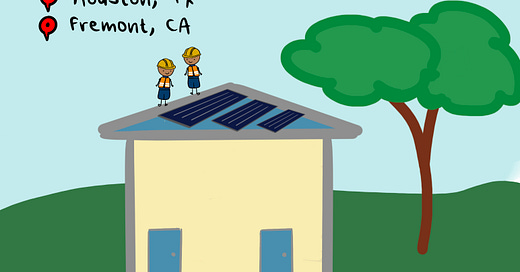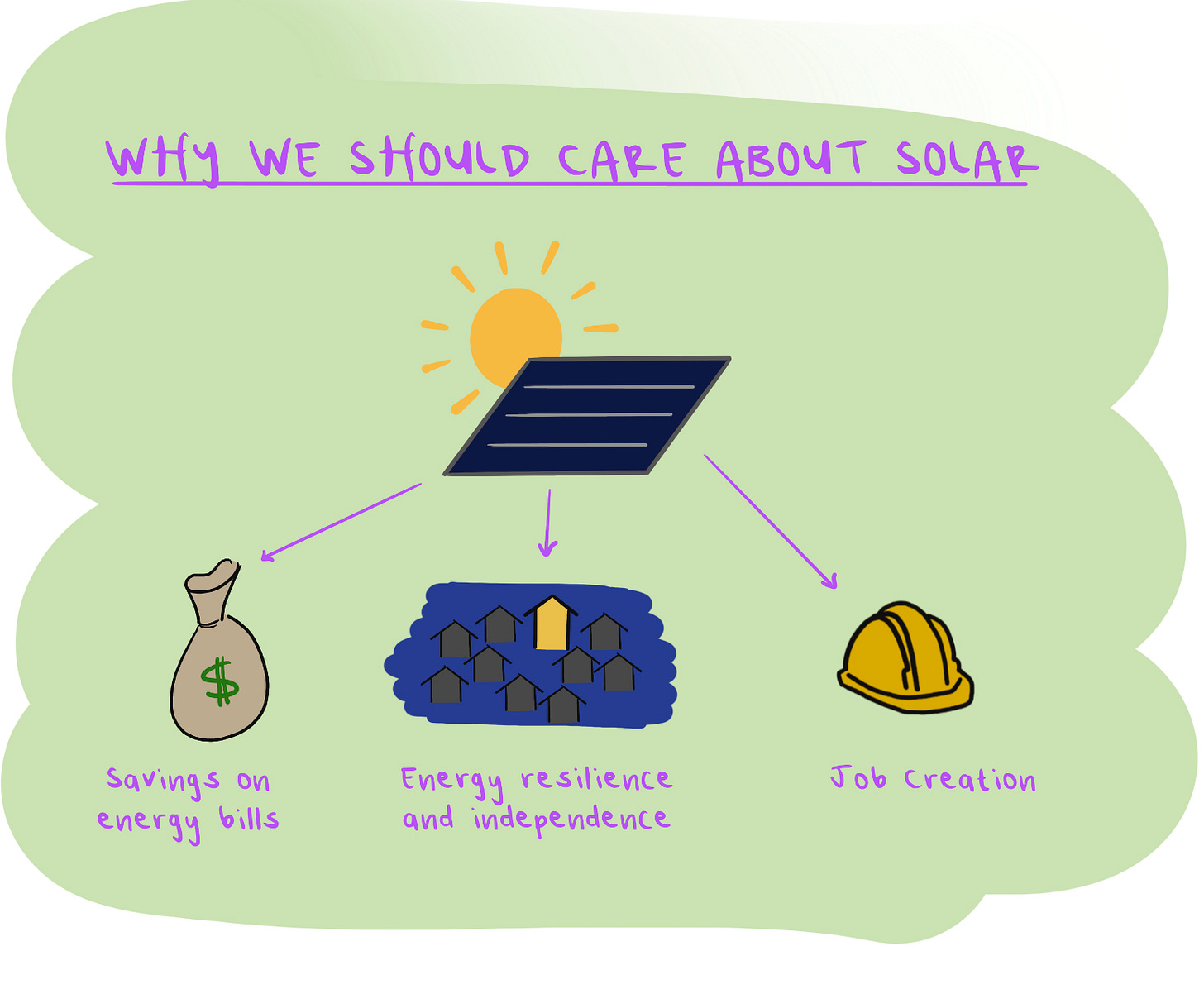Street Notes 6: Solar panels aren’t just a climate solution
We go to Houston, TX and Fremont, CA to see why they're so much more than that.
Solar panels are the poster child of climate solutions. And for good reason — they promise clean, low-carbon, infinite energy at both the utility scale and at individual people’s homes.
But what if we stopped thinking about solar panels as a climate solution? What if we explored all the ways that solar panels can create value for us, and not just the atmosphere?
Well, for the past couple of weeks, we’ve been asking that question. We found unexpected stories of how solar power improves people’s everyday lives: from jobs, to energy independence and resilience, to cost savings and financial stability. Today, we’re going to share three of those stories.
Jobs: Anthony and Michael
At the beginning of February, we found ourselves in the energy capital of America: Houston, Texas. We were there to chat with Anthony and Michael Menendez, the two brothers and co-founders of Texas Direct Solar.
Anthony and Michael have spent (nearly) all of their lives in Houston; they built their homes and families in this city. Now, they’ve also built their business in Houston, installing solar power systems and batteries on residential and commercial buildings.
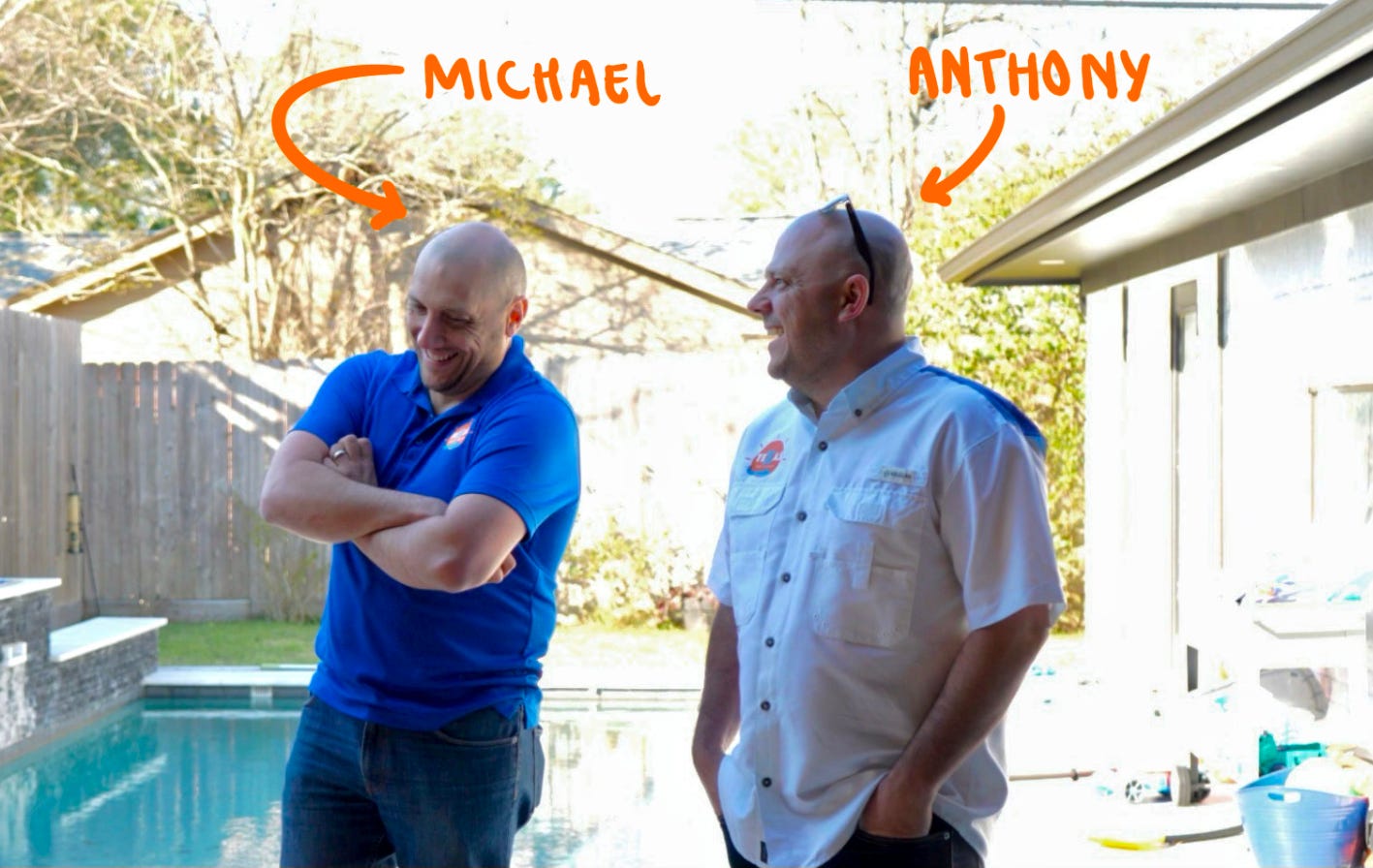
Since they founded Texas Direct Solar in 2018, Anthony and Michael have employed around 25 people from all walks of life and installed solar panels on 140 homes and businesses. That's 2.5 megawatts of capacity! More importantly, every panel that they install doesn’t just generate clean local energy; it also creates high quality, local jobs that support Houston’s economy and leadership in Climate Industrialism.

Most importantly, the jobs that Texas Direct Solar — and the rest of the solar industry — creates offer opportunities for everyone. Whether you come from private equity (like Michael), oil and gas (like Anthony), electrical engineering, or a technical school, you can find an exciting role in this industry. And as Anthony said — the trades are probably the most stable career paths anyone can follow as we transition to a new economy.
These employment trends aren’t just happening in Houston; they’re showing up across the country. Texas alone is home to more than 10,000 jobs in the solar industry; across the country that number is over 250,000! An incredible 40% of all US energy sector jobs are in solar — the sun is shining bright, after all!
Executives in energy hubs across the country attest to the steady stream of people moving from fossil fuel to renewable energy jobs. After oil and gas companies laid off 160,000 workers in 2020, climate tech companies like Enel, Sunnova Energy, and GreenStruxure were there to happily pick up the skilled labor.
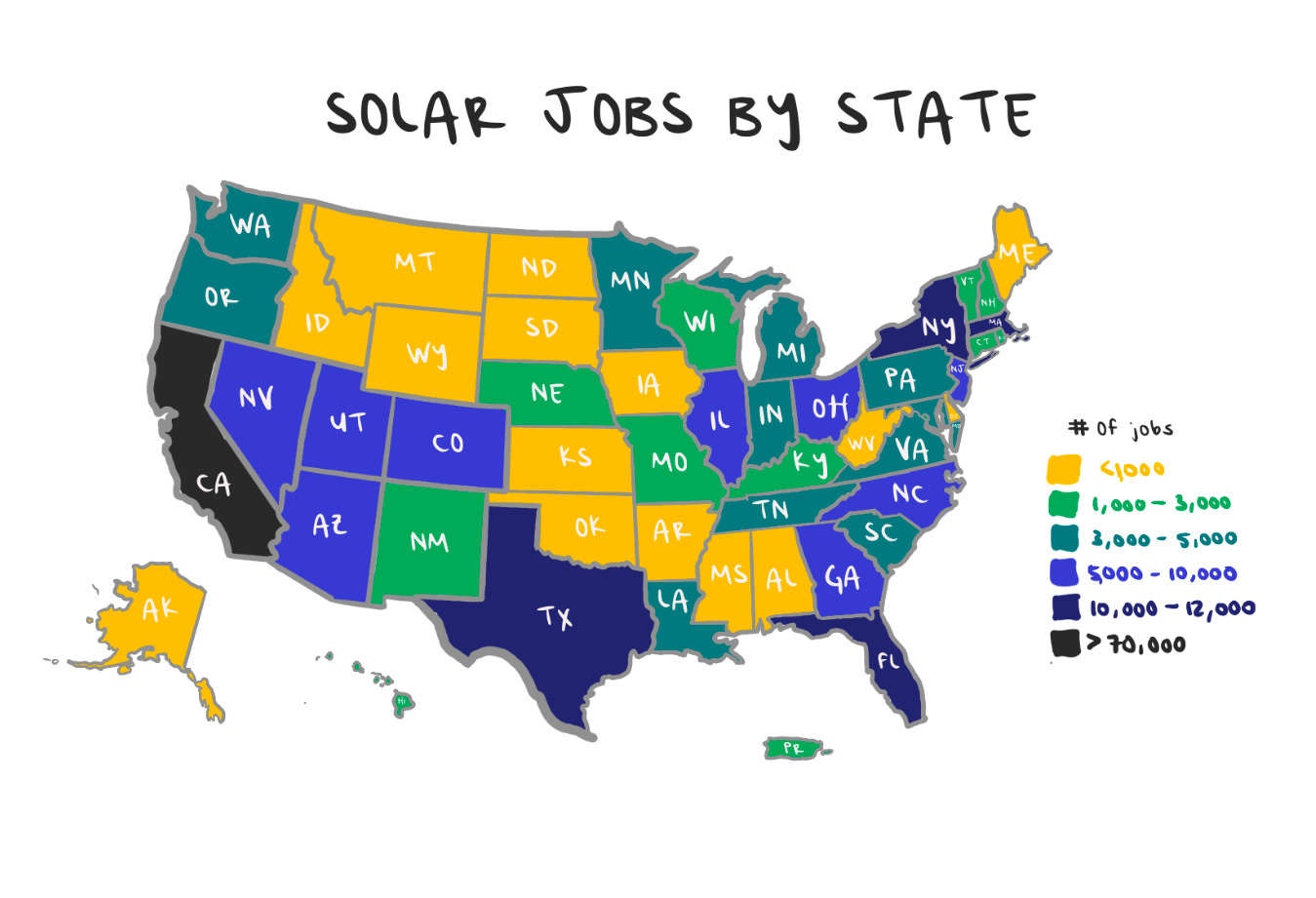
Beyond these direct employment opportunities, our interview with Michael and Anthony shed light on an unexpected way that solar is supporting local jobs. Texas Direct Solar works with PGW Solutions to provide turnkey renewable and energy efficiency solutions. We chatted with PGW's CFO, Brandon Welch, who shared that some of their commercial customers have saved nearly $150,000 every month in energy costs. As interest rates rise and businesses cut costs, those savings could prevent layoffs and save jobs.
Energy Resilience and Independence: Brandon and the Welch Family
Brandon isn't just the CFO of PGW solutions; he's also a customer of Texas Direct Solar. He’s installed a set of 35 solar panels on his home, along with a battery system that allows him to store 20 KW of power. When we asked Brandon why he installed solar on his home, he talked about his rising electricity bills and reliability.
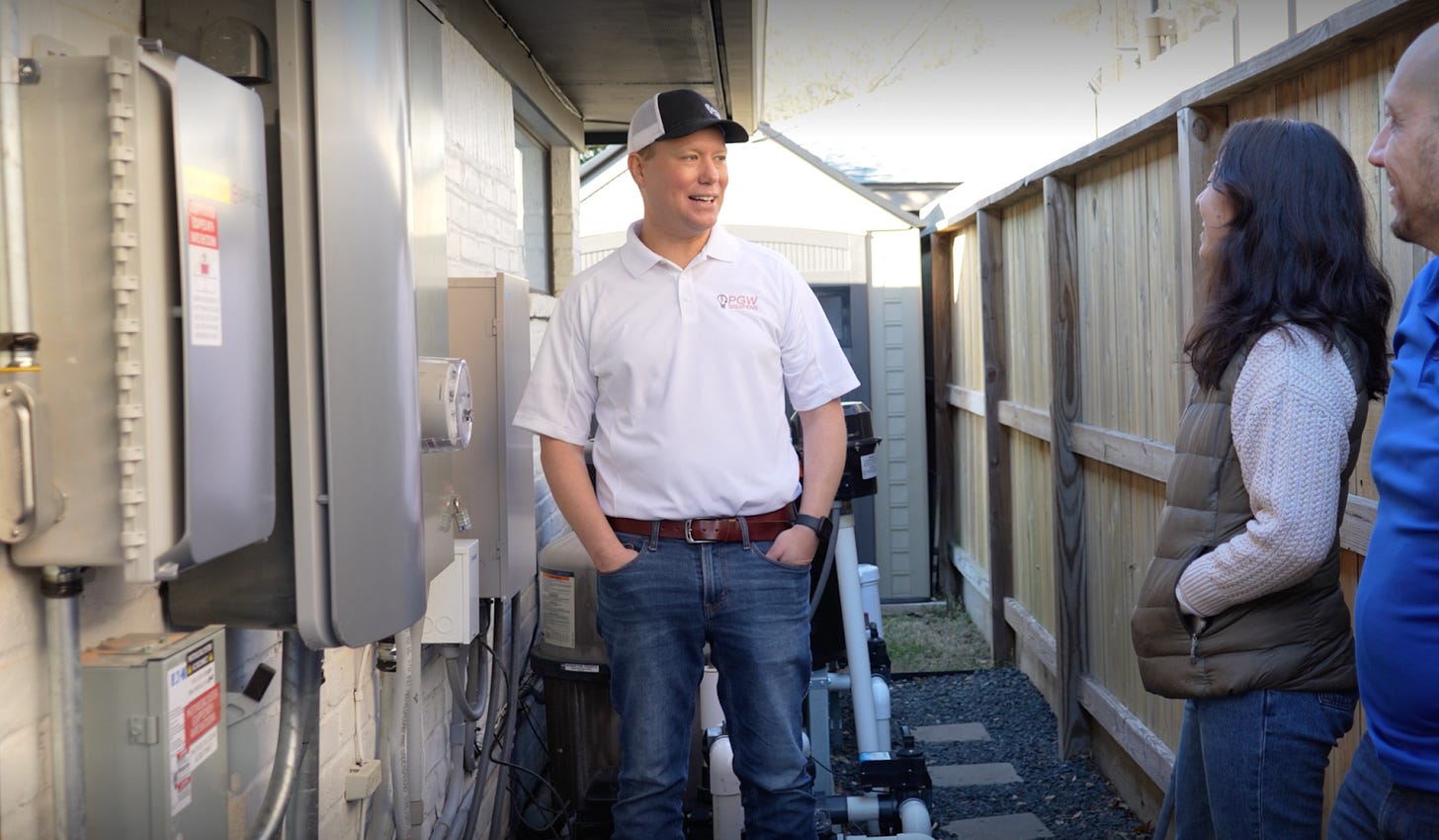
“Each year,” Brandon said, “I was seeing my utility bills go up by $100 a month or more”. Relying on an energy company for his power was costing Brandon and his family money that could go to his kids' baseball practices and family trips. Switching to solar offered an opportunity to attain freedom from the whims of private companies and volatile prices.
And perhaps more importantly, Brandon’s solar power system means that even if the grid goes down, his lights will stay on. This hits home for Brandon. In 2008, his parents lost their power for two weeks when Hurricane Ike struck their neighborhood. In 2017, his brother lost power and had to evacuate when Hurricane Harvey struck. In 2021, it was Brandon's turn — Texas's historic freeze shut the grid down, and the inside of Brandon's house was dipping to 45 degrees Fahrenheit. For him, that was the final straw; he wanted to make sure that his family was prepared for anything that the weather threw at them.
To Brandon, that alone makes solar power worth its while. “It’s all about that peace of mind”, Brandon said, “I have a wife and three kids.” In the world’s energy capital, solar power provides what oil and gas can’t: energy independence and security.
Savings and Financial Security: Eli
For our final story, we’re going across the country to Fremont, California to meet with Eli. We met Eli at his home in a neighborhood known as Central Commons. At first glance, Central Commons seems like an absolutely ordinary (though lovely!) multi-family housing development. That is, until you hear the story of how it was built.
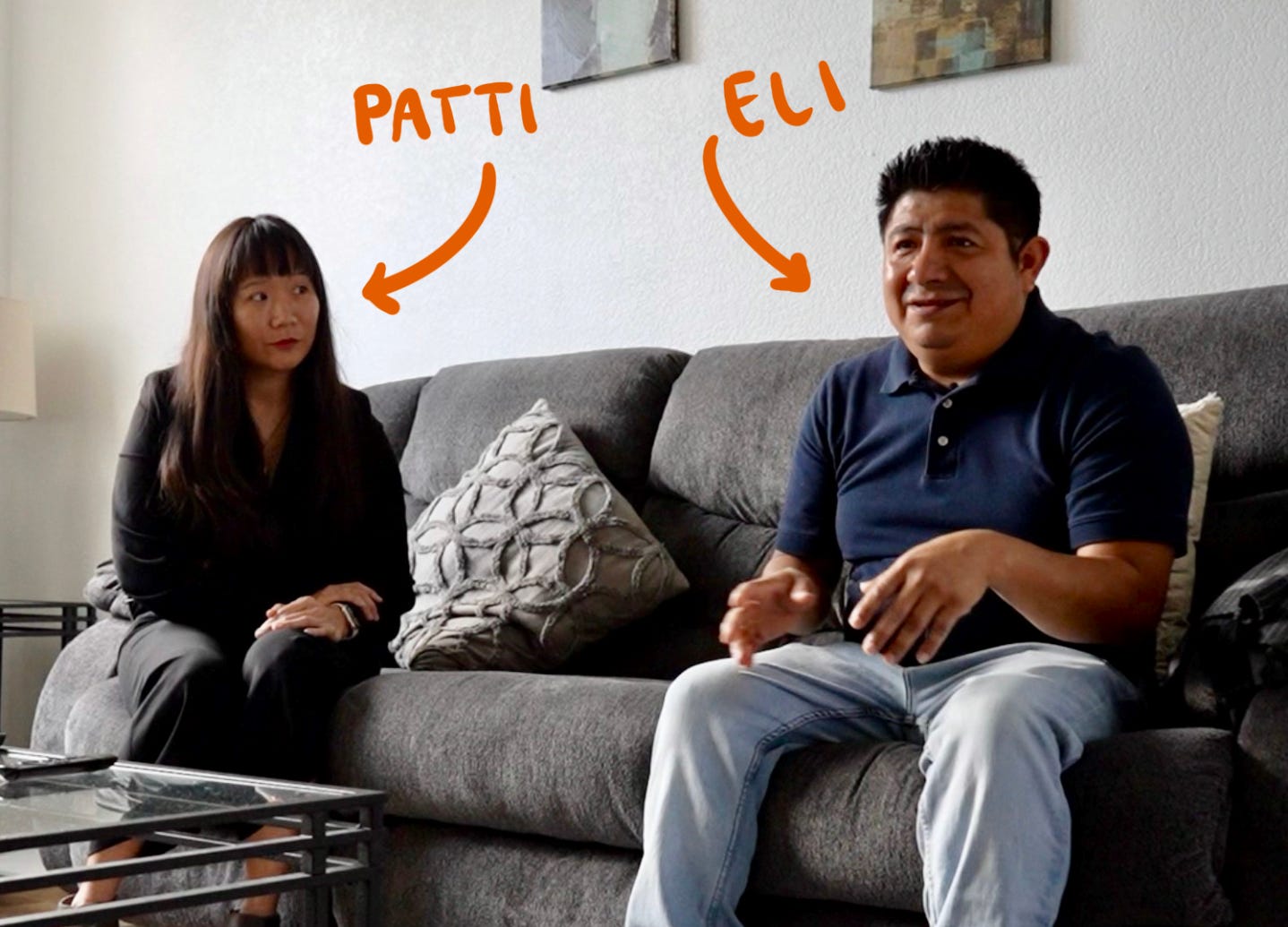
Central Commons was a massive community effort by Habitat for Humanity East Bay/Silicon Valley, including the generosity of thousands of volunteers and supporters, in partnership with the homeowners who physically helped to construct the homes they now live in. All of the families who live at Central Commons had to go through an incredibly rigorous process to apply for this program that makes homeownership possible for families earning limited incomes through affordable mortgages – a program in high demand in an area where housing prices are notoriously high. Eli is now a proud homeowner at Central Commons, and there’s one particularly notable feature of his home: it has solar panels.
Habitat for Humanity’s builds across the Bay Area have used a variety of green building materials and technologies for years. Together, these create a low, and most importantly predictable monthly energy cost for Eli and his family — even as electricity rates rise. Across the US, energy prices increased 14.3% on average in 2022, double the overall inflation rate.

Like Brandon, Eli now knows what his electricity bill is going to look like every month. Thanks to his home’s energy efficiency and solar power system, Eli’s energy costs are now about 25% of what they were in his previous apartment. This would be a big deal to most families, but these savings are especially impactful for families like Eli’s.
When we asked Eli what he does with the money he saves every month thanks to his solar system, he beamed. “Well,” he said, “for the first time, I’m able to save for my own retirement, and for my kids’ college.”
And that’s why we don’t think solar panels are a climate solution.
Solar panels are so much more than that. Across the country, we’ve talked to people whose lives haven’t just been touched by solar power; they’ve been transformed. In Washington, DC, the city government has built the Oxon Run Community Solar Farm on polluted land, turning an eyesore into an energy hub that has cut the electricity bills of 700 low-income families in the area in half. In New York, 73 state-supported utility-scale solar projects under development across the state will deliver enough electricity to power more than 2.2 million homes. (Stay tuned for Street Notes on both!)
And all this investment comes with jobs, jobs, and more jobs. For solar to reach 30% of US electricity generation by 2030, we will add 800,000 new jobs to the sector and the industry will invest more than $820 billion into the U.S. economy. This transformation is giving a sense of security and independence to families who can’t rely on the grid. And most importantly, it’s giving all of us an opportunity to save our money for the things that matter most to us.
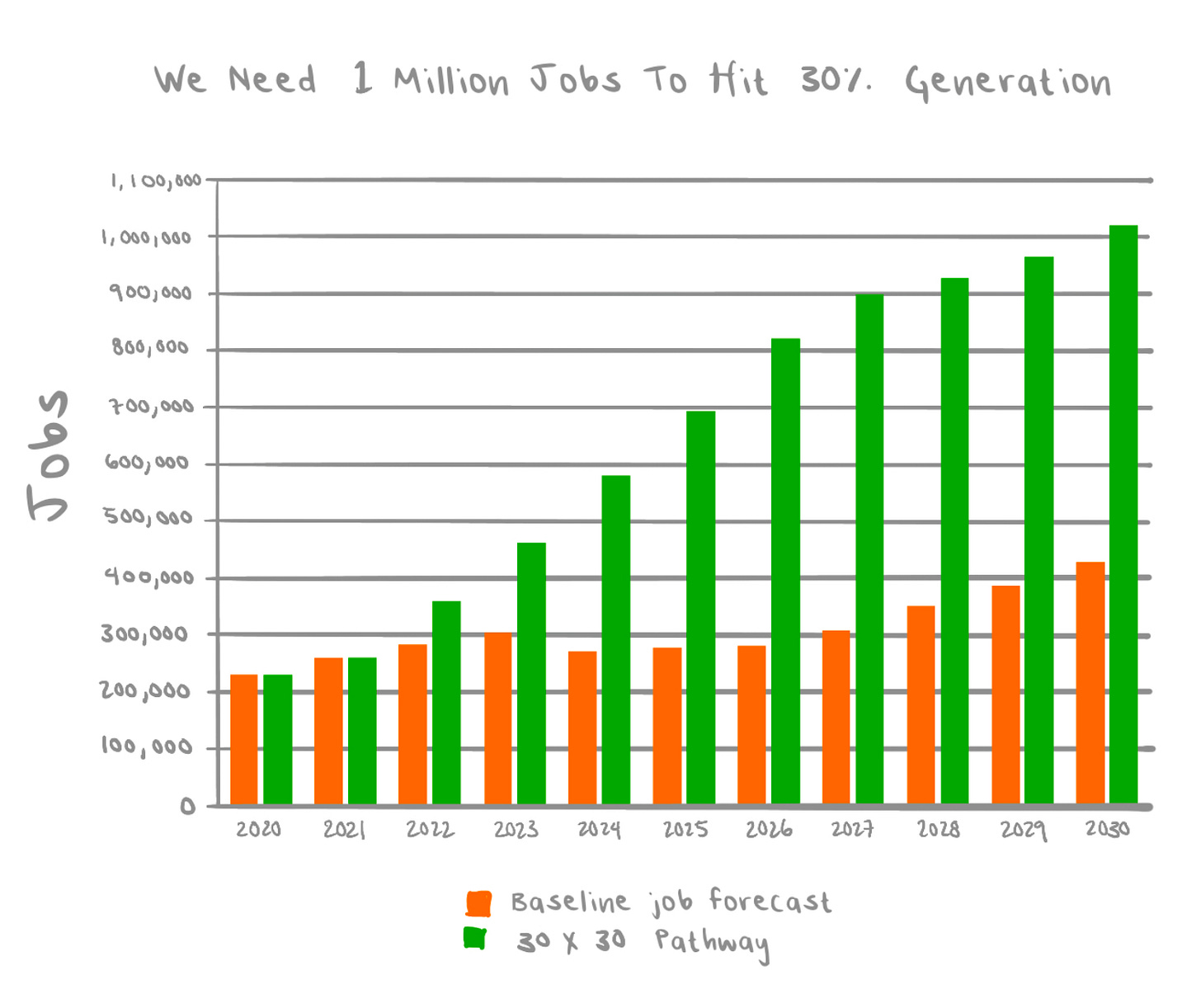
These are the solutions that Parachute is all about. Technologies like solar panels don’t require scarcity or sacrifice for the sake of the planet; they allow us to be a part of climate solutions that align with the priorities that we already have, rooted in progress and abundance.
So, whether or not you care about climate change, we hope that you’ll get solar panels installed on your home or business. They’re really not just a climate solution, after all.

